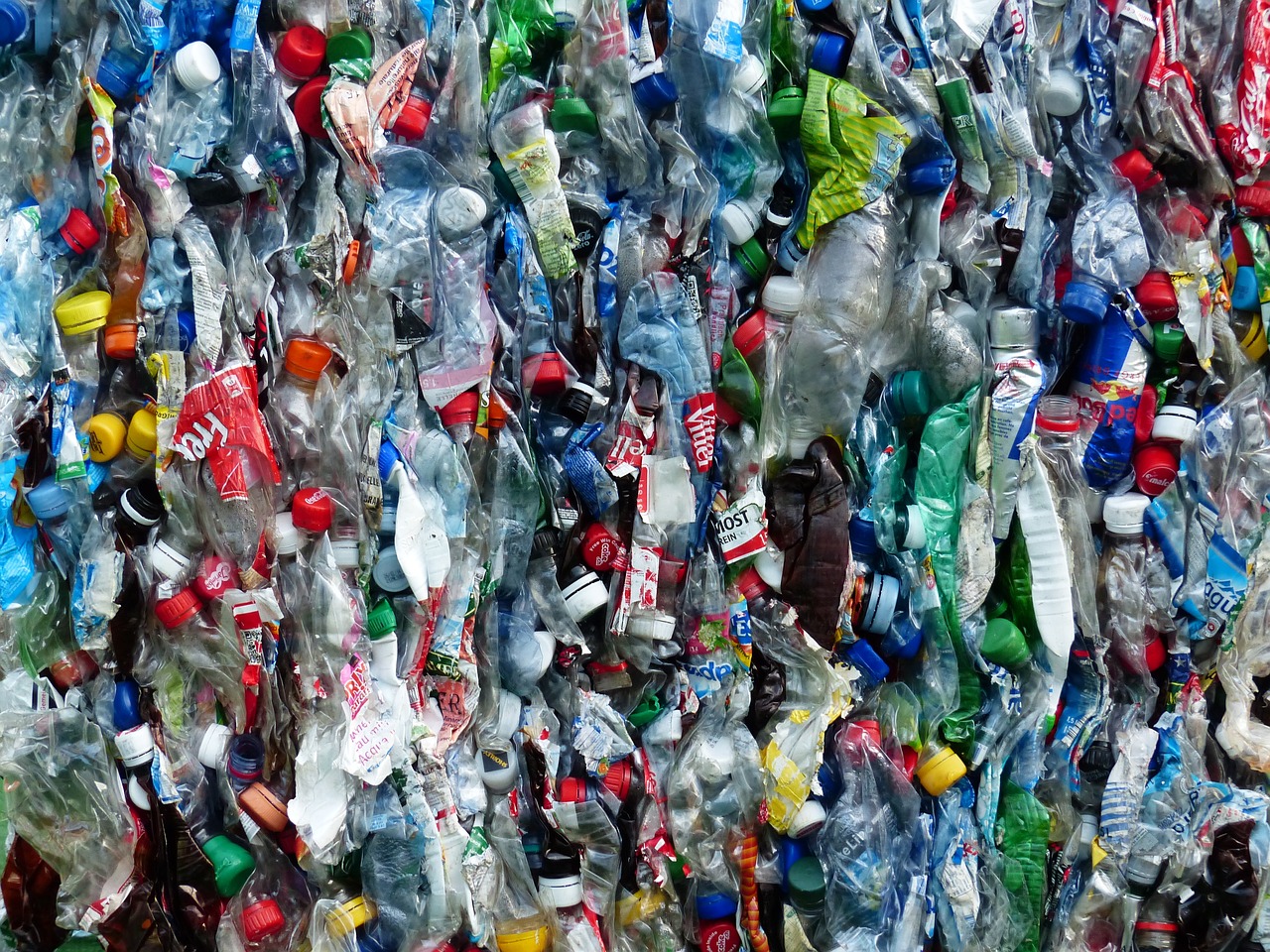Recycling paper is not just a trendy thing to do; it's a crucial practice that brings a multitude of benefits to our planet, economy, and society. When we think about recycling, we often picture those blue bins filled with newspapers and cardboard, but the impact of recycling paper goes much deeper than that. It's a powerful way to contribute to a healthier environment, save money, and foster a sense of community. In this article, we will explore the various benefits of recycling paper, emphasizing how each of us can play a part in this vital process.
One of the most significant benefits of recycling paper is its positive environmental impact. When we recycle paper, we significantly reduce the amount of waste that ends up in landfills. Think about it: every ton of recycled paper saves approximately 17 trees, 7,000 gallons of water, and 4,100 kilowatts of electricity. This means that by simply recycling our paper, we can help minimize deforestation, conserve natural resources, and lower greenhouse gas emissions. It's like giving Mother Nature a much-needed hug!
Moreover, recycling paper helps to keep our air and water clean. The process of making new paper from recycled materials uses less energy and produces fewer pollutants than creating paper from virgin materials. This reduction in pollution contributes to a healthier planet for future generations. So, every time you toss that old newspaper into the recycling bin, remember that you are not just cleaning up your space; you are actively participating in the fight against climate change.
Recycling paper doesn't just benefit the environment; it also brings economic advantages that can have a broad impact on communities and businesses alike. For starters, recycling paper can lead to significant cost savings for municipalities and businesses. By diverting waste from landfills, communities can reduce their waste management costs, allowing them to allocate those resources to other essential services like education and public safety.
Another economic benefit of recycling is job creation. The recycling industry generates numerous job opportunities in areas such as collection, processing, and manufacturing. It's estimated that for every job in the recycling sector, there are several additional jobs created in related fields. This means that when you recycle, you are not only helping the environment but also supporting local economies and fostering a skilled workforce dedicated to sustainability.
While recycling creates local job opportunities, its impact is felt globally. By reducing the need for virgin materials, recycling helps to strengthen economies worldwide. This interconnectedness promotes responsible resource management and encourages countries to work together towards a sustainable future. It's like a ripple effect; when one community commits to recycling, it inspires others to follow suit, creating a wave of positive change.
Investing in recycling infrastructure can lead to long-term economic stability. Communities that prioritize recycling not only save money but also create a sustainable model for future growth. By reducing waste management costs and promoting the use of recycled materials, these communities can ensure that their economies remain resilient and adaptable in an ever-changing world.
The demand for recycled paper products is on the rise. As businesses and consumers prioritize sustainable options, the market for recycled materials is thriving. This shift not only supports the recycling industry but also encourages innovation in creating new products from recycled materials. It's a win-win situation where we can enjoy high-quality products while also being kind to our planet.
Recycling paper also fosters a sense of social responsibility among individuals and communities. Engaging in recycling initiatives can enhance public awareness about environmental issues and encourage environmentally friendly practices. When people come together to recycle, it creates a sense of community and shared purpose, which is incredibly powerful.
Recycling programs often involve community participation, promoting teamwork and collaboration. Local events, such as clean-up days or recycling drives, can strengthen community bonds while raising awareness about sustainability. These initiatives not only educate participants but also create lasting relationships among community members, making everyone feel like they are part of something bigger.
Moreover, recycling initiatives provide valuable educational opportunities. Schools and organizations can implement programs to teach individuals about the importance of recycling and its positive effects on the environment. By educating the next generation, we can ensure that the practice of recycling continues to grow and evolve, leading to a more sustainable future for all.

Recycling paper is not just a trend; it's a crucial step towards preserving our planet. Imagine a world where trees are not just cut down but cherished; that's what recycling can help us achieve. By recycling paper, we significantly reduce the amount of waste that ends up in landfills. This is important because landfills are not just unsightly; they release harmful gases that contribute to climate change. In fact, recycling one ton of paper can save approximately 17 trees, 7,000 gallons of water, and 4,100 kilowatts of electricity. That's enough energy to power an average home for about five months!
Moreover, recycling paper conserves our natural resources. Every piece of paper we recycle means fewer trees are cut down, which in turn helps to maintain biodiversity and the health of our ecosystems. It’s like giving Mother Nature a much-needed hug. When we recycle, we also reduce the need for virgin materials, which helps in minimizing deforestation. Deforestation not only affects wildlife but also contributes to the loss of carbon sinks, which are vital for absorbing greenhouse gases.
Another compelling reason to recycle paper is its role in lowering greenhouse gas emissions. The production of recycled paper generates less pollution than that of new paper. For instance, recycling paper reduces air pollution by over 70% and water pollution by about 35%. By choosing to recycle, we are actively participating in a solution that helps combat climate change. It’s like choosing to be a hero for our planet, one piece of paper at a time!
In addition to these benefits, recycling paper also plays a role in creating a circular economy. This means that instead of taking resources from the earth and throwing them away, we are reusing and repurposing materials. This cycle not only conserves resources but also creates a more sustainable way of living. Think of it as a recycling relay, where each participant has a role in passing the baton of sustainability to the next.
To sum it up, the environmental impact of recycling paper is profound. It helps in:
By understanding these benefits, we can inspire more individuals and organizations to take action. It's not just about recycling; it's about creating a sustainable future for generations to come.
Q: What types of paper can be recycled?
A: Most types of paper can be recycled, including office paper, newspapers, magazines, and cardboard. However, paper products that are contaminated with food or grease, like pizza boxes, may not be recyclable.
Q: How can I start recycling paper at home?
A: You can start by setting up a dedicated recycling bin for paper in your home. Make sure to educate your family about what can and cannot be recycled, and take your recyclables to your local recycling center regularly.
Q: What happens to recycled paper?
A: Once collected, recycled paper is processed and turned into new paper products. This includes everything from new paper sheets to cardboard boxes, contributing to a sustainable cycle.

Recycling paper isn't just an environmental boon; it also packs a powerful economic punch. When we talk about the of recycling paper, we're diving into a world of cost savings, job creation, and sustainable growth. Imagine this: every ton of paper recycled can save up to 17 trees, 7,000 gallons of water, and 4,100 kilowatts of electricity. That's not just good for the planet; it's also good for your wallet!
First off, let’s consider the cost savings for businesses and municipalities. By recycling paper, companies can significantly reduce their waste disposal costs. Instead of paying to send waste to landfills, they can sell their recyclable paper to processing facilities. This not only cuts down on expenses but also generates additional revenue streams. For local governments, recycling programs can reduce the burden on waste management systems, allowing them to allocate funds to other essential services like education and infrastructure.
Now, let’s talk about job creation. The recycling industry is a bustling hub of employment opportunities. From collection to processing and manufacturing, there are numerous jobs created at every stage of the recycling process. According to recent studies, recycling and reuse activities in the U.S. alone support over 1.1 million jobs and generate $236 billion in revenue. This is a massive boost for local economies, fostering a skilled workforce dedicated to sustainability.
Within the recycling sector, job creation is not just a statistic; it’s a reality that impacts communities. When you think about it, every time you toss a piece of paper into the recycling bin, you are contributing to a cycle that supports jobs in:
This interconnectedness between recycling and job creation illustrates how a simple act can lead to a ripple effect in the economy.
While recycling creates local jobs, its influence extends globally. By reducing the need for virgin materials, recycling helps to stabilize international markets and minimize the environmental impact of resource extraction. This interconnectedness not only strengthens local economies but also promotes responsible resource management on a global scale. Think of it as a web of sustainability that connects communities across the globe, all working together towards a common goal.
Investing in recycling infrastructure is like planting a seed for long-term economic stability. Communities that prioritize recycling not only reduce waste management costs but also create an environment where innovation can thrive. By saving money on waste disposal, municipalities can redirect funds into other essential services, creating a more robust community overall. This is a classic case of recycling your resources—both literally and figuratively!
The demand for recycled paper products is on the rise, and it’s not just a passing trend. Businesses and consumers alike are becoming more environmentally conscious, leading to a thriving market for recycled materials. In fact, many companies are now prioritizing sustainable options in their supply chains, which creates a positive feedback loop: the more demand there is for recycled products, the more incentive there is to recycle! This dynamic not only supports the economy but also encourages innovation in recycling technologies, making the process more efficient and effective.
In conclusion, the economic benefits of recycling paper are profound and far-reaching. From cost savings and job creation to fostering sustainable growth, the advantages are clear. So, the next time you think about tossing that piece of paper in the bin, remember the bigger picture. Your small actions can lead to significant economic impacts!
Q: How much money can businesses save by recycling paper?
A: Businesses can save a substantial amount on waste disposal fees, and some even generate revenue by selling their recyclable paper to processing facilities.
Q: What types of jobs are created in the recycling industry?
A: Jobs in the recycling industry include positions in collection, sorting, processing, and manufacturing recycled products.
Q: How does recycling paper help the environment?
A: Recycling paper reduces landfill waste, conserves natural resources, and lowers greenhouse gas emissions, contributing to a healthier planet.

When we talk about in the recycling sector, it’s like opening a treasure chest filled with opportunities! The recycling industry is a bustling hub of activity that generates a plethora of jobs across various fields. From the moment paper is collected from your curbside bin to the time it becomes a brand-new product, countless individuals are involved in this remarkable process.
One of the most impressive aspects of recycling is how it creates jobs in three main areas: collection, processing, and manufacturing. Each of these stages requires a diverse set of skills and expertise. For instance, collection involves drivers and workers who gather recyclables, while processing requires technicians and operators who sort and prepare materials for manufacturing. Finally, the manufacturing sector employs workers who transform recycled materials into new products, such as paper, cardboard, and even insulation.
To give you a clearer picture, let’s break it down:
Moreover, the recycling industry isn’t just about creating jobs; it’s about fostering a skilled workforce dedicated to sustainability. As more individuals enter this field, they gain valuable experience and knowledge that can lead to further innovations in recycling technology and practices. This is crucial because a well-trained workforce is essential for improving recycling rates and enhancing the efficiency of the entire process.
Interestingly, the impact of job creation in recycling extends beyond local economies. As communities embrace recycling, they contribute to a larger global movement that reduces the need for virgin materials. This interconnectedness means that job creation in one area can lead to positive economic effects worldwide. For instance, when a town invests in a recycling facility, it not only creates jobs locally but also reduces the demand for raw materials, which can stabilize prices and create jobs in other regions as well.
In summary, the job creation potential within the recycling paper industry is both vast and vital. It not only supports local economies but also promotes a sustainable future. By choosing to recycle, we are not just reducing waste; we are also investing in our communities and contributing to a healthier planet.
Q1: How many jobs are created for each ton of recycled paper?
A1: On average, recycling paper creates about 1.17 jobs per ton of paper recycled, compared to only 0.17 jobs for landfilling the same amount.
Q2: What types of jobs are available in the recycling industry?
A2: Jobs in the recycling industry include collection drivers, sorting facility workers, machinery operators, and manufacturing roles, among others.
Q3: How does recycling paper impact the economy?
A3: Recycling paper not only creates jobs but also reduces waste management costs, promotes sustainable practices, and contributes to economic growth through the production of recycled goods.

The impact of recycling paper extends far beyond the local community; it resonates on a global scale. When we recycle paper, we are not just keeping our neighborhoods clean and clutter-free; we are actively participating in a larger movement that affects the entire planet. Imagine a world where every piece of paper recycled contributes to the preservation of forests and the reduction of carbon emissions. Sounds powerful, doesn’t it? That's because it is!
On a local level, recycling creates jobs and fosters a sense of community. When residents engage in recycling programs, they are not only helping to manage waste but also supporting local businesses involved in the recycling process. These businesses often rely on community participation to thrive, creating a symbiotic relationship that strengthens the local economy. For instance, a local recycling center might employ residents for collection and processing, thereby boosting job opportunities in the area.
However, the benefits of recycling paper stretch far beyond local economies. On a global scale, recycling reduces the demand for virgin materials, which in turn helps to mitigate deforestation. Each ton of recycled paper can save approximately 17 trees, 7,000 gallons of water, and reduce greenhouse gas emissions significantly. This interconnectedness means that when we recycle in our communities, we are contributing to a healthier planet for everyone. It’s like throwing a pebble into a pond—the ripples extend outward, affecting the entire ecosystem.
Furthermore, the global impact of recycling can be illustrated through a simple table showcasing the benefits:
| Local Impact | Global Impact |
|---|---|
| Job creation in the community | Reduction in deforestation rates |
| Strengthened local economy | Lower carbon footprint |
| Increased community awareness | Conservation of global resources |
In conclusion, the act of recycling paper is a powerful tool that can drive both local and global change. It’s a reminder that every small action counts. When communities come together to recycle, they not only improve their immediate environment but also contribute to a sustainable future for generations to come. So, the next time you toss a piece of paper into the recycling bin, remember that you are part of a much larger story—one that connects your local actions to global outcomes.
Recycling paper is crucial because it conserves natural resources, reduces waste in landfills, and lowers greenhouse gas emissions, contributing to a healthier environment.
The recycling industry requires workers for collection, processing, and manufacturing recycled products, thereby generating numerous job opportunities.
Recycling helps reduce deforestation, conserves water, and decreases pollution, making it essential for environmental sustainability.
You can participate by joining local recycling programs, educating others about the importance of recycling, and making a conscious effort to recycle at home.

Investing in recycling infrastructure is not just a fleeting trend; it’s a strategic move toward long-term economic stability. When communities prioritize recycling, they aren't merely addressing waste management issues; they are laying the groundwork for a sustainable future that can yield significant economic benefits over time. Think about it: every ton of paper that is recycled saves valuable resources, reduces costs associated with waste disposal, and opens up new avenues for revenue generation.
By reducing the volume of waste sent to landfills, municipalities can save on landfill tipping fees and other associated costs. These savings can then be redirected toward essential community services such as education, healthcare, and infrastructure development. Moreover, investing in recycling facilities creates a ripple effect that can lead to job creation in various sectors, including manufacturing, logistics, and environmental services.
Consider the following statistics that highlight the economic potential of recycling:
| Benefit | Impact |
|---|---|
| Job Creation | 1 job in recycling creates 1.17 jobs in manufacturing |
| Cost Savings | Communities can save up to 50% on waste management costs |
| Revenue Generation | Recycling can generate millions in revenue through the sale of recycled materials |
Furthermore, as the demand for recycled materials continues to grow, businesses that invest in recycling initiatives can position themselves as leaders in sustainability. This not only enhances their brand image but also attracts environmentally conscious consumers who are willing to pay a premium for sustainable products. In essence, recycling is not just about reducing waste; it's about creating a circular economy where resources are reused, jobs are created, and communities thrive.
In conclusion, the long-term economic growth resulting from recycling initiatives is profound. It fosters a resilient economy, supports local job markets, and encourages responsible resource management. As communities embrace recycling as a core value, they pave the way for a sustainable future that benefits not just the environment but also the economy.

This article explores the various benefits of recycling paper, including environmental, economic, and social advantages. Understanding these benefits can encourage more people to participate in recycling initiatives.
Recycling paper significantly reduces waste in landfills and conserves natural resources. It helps in minimizing deforestation and lowers greenhouse gas emissions, contributing to a healthier planet.
Recycling paper can lead to cost savings for businesses and municipalities. It creates jobs in the recycling industry and promotes sustainable economic growth through the production of recycled materials.
The recycling industry generates numerous job opportunities in collection, processing, and manufacturing. This sector supports local economies and fosters a skilled workforce dedicated to sustainability.
While recycling creates local jobs, it also has a global impact by reducing the need for virgin materials. This interconnectedness strengthens economies worldwide and promotes responsible resource management.
Investing in recycling infrastructure can lead to long-term economic stability. By reducing waste management costs, communities can allocate resources to other essential services.
The demand for recycled paper products is steadily increasing, and this trend is not just a passing fad; it’s a movement towards sustainability. As consumers become more aware of environmental issues, they are actively seeking products that align with their values. This shift in consumer behavior has opened doors for businesses to innovate and adapt their product lines to include recycled materials.
For instance, many companies are now prioritizing the use of recycled paper in their packaging, stationery, and promotional materials. This not only appeals to eco-conscious consumers but also enhances brand image. In fact, studies show that consumers are willing to pay a premium for products made from recycled materials, which translates to increased sales for businesses committed to sustainability.
Moreover, the rise in demand for recycled products has led to the establishment of new markets and business opportunities. Companies focusing on the recycling process are now able to provide high-quality recycled materials that can compete with virgin products. This competition is crucial in driving prices down and making recycled products more accessible to the average consumer.
To illustrate the growing market demand, consider the following statistics:
| Year | Market Size of Recycled Paper Products (in Billion USD) | Growth Rate (%) |
|---|---|---|
| 2020 | 15 | 5 |
| 2021 | 16.5 | 10 |
| 2022 | 18 | 9 |
| 2023 | 20 | 11 |
As you can see from the table, the market for recycled paper products is not only growing but doing so at an impressive rate. This growth signifies a robust shift towards sustainability and a collective effort to reduce our environmental footprint.
In conclusion, the increasing market demand for recycled products is a clear indication that consumers are ready to embrace change. By choosing recycled paper, we are not just making a purchase; we are making a statement about our commitment to the planet. So, next time you're shopping, consider opting for products that are made from recycled materials. It's a small choice that can lead to significant change!
Recycling paper fosters a sense of community and social responsibility. Engaging in recycling initiatives can enhance public awareness and encourage environmentally friendly practices among individuals and organizations.
Recycling programs often involve community participation, promoting teamwork and collaboration. Local events and initiatives can strengthen community bonds while raising awareness about sustainability.
Recycling initiatives provide valuable educational opportunities. Schools and organizations can implement programs to teach individuals about the importance of recycling and its positive effects on the environment.

Recycling paper is not just an environmental act; it’s a powerful statement about our . When we recycle, we’re telling our communities that we care about the planet and the future of generations to come. It’s like planting a tree today for someone else to enjoy tomorrow. By participating in recycling initiatives, we foster a sense of community and encourage others to do the same. This collective effort can create a ripple effect, inspiring more individuals and organizations to adopt sustainable practices.
Engaging in recycling programs often leads to increased public awareness about the importance of sustainability. It’s not just about tossing paper into a bin; it’s about understanding the broader implications of our waste. For example, did you know that recycling just one ton of paper can save 17 trees? This kind of knowledge can empower communities to take action and make informed decisions about their consumption habits. Furthermore, local events centered around recycling can create a vibrant atmosphere where people come together, share ideas, and collaborate on sustainability projects.
Moreover, recycling initiatives provide valuable educational opportunities. Schools, for instance, can implement programs that teach students about the recycling process and its positive effects on the environment. These programs often include hands-on activities, such as creating art from recycled materials or organizing clean-up drives, allowing students to experience the impact of their efforts firsthand. By integrating recycling education into the curriculum, we not only raise awareness but also cultivate a generation that values and prioritizes sustainability.
In addition, community-led recycling efforts can enhance teamwork and collaboration among residents. When people come together for a common cause, it strengthens the bonds within the community. Events like neighborhood clean-ups or recycling drives can be fun and engaging, turning what might feel like a chore into an enjoyable social gathering. This sense of unity is vital for fostering a culture of sustainability, as it encourages individuals to take ownership of their local environment and work together towards common goals.
In conclusion, the social responsibility aspect of recycling paper extends far beyond the act itself. It’s about creating a culture of awareness, education, and community engagement. By embracing recycling initiatives, we can cultivate a sense of responsibility that not only benefits our environment but also strengthens our social fabric. So, why not get involved? Whether it's organizing a local recycling event or simply spreading the word about its benefits, every action counts!

When it comes to recycling paper, plays a vital role in fostering a culture of sustainability. Imagine a neighborhood coming together, united by a common goal—to reduce waste and protect the environment. It’s not just about tossing paper into a bin; it’s about creating a movement that inspires everyone to take action. Engaging the community in recycling initiatives can transform the way people think about waste management and environmental responsibility.
One of the most effective ways to promote community engagement is through local events. These gatherings can range from recycling drives to educational workshops. Such events not only provide a platform for residents to learn about the importance of recycling but also encourage them to participate actively. For instance, a community recycling day might include:
By fostering an environment of collaboration, these initiatives can significantly strengthen community bonds. People start to see that they are part of something larger than themselves, which can be incredibly empowering. When neighbors come together to tackle a common challenge, they build relationships that extend beyond just recycling.
Moreover, local schools often play a crucial role in this engagement. By incorporating recycling programs into their curriculum, schools can teach students the importance of sustainability from a young age. This not only raises awareness among children but also encourages families to adopt eco-friendly practices at home. Imagine students coming home excited about recycling, sharing what they learned with their parents, and inspiring them to get involved!
In addition to schools, local businesses can also contribute to community engagement by sponsoring recycling events or providing resources. When businesses invest in their community, it sends a powerful message about social responsibility. The ripple effect of these actions can lead to a more informed and active community that prioritizes sustainable practices. Ultimately, when people feel connected to their community and see the tangible benefits of recycling, they are more likely to continue these practices long-term.
In summary, community engagement is a cornerstone of effective recycling initiatives. By bringing people together, fostering education, and promoting collaboration, we can create a culture of sustainability that not only benefits the environment but also strengthens our communities. So, why not take the first step? Get involved, participate in local events, and encourage your neighbors to do the same. Together, we can make a significant impact!

Recycling initiatives serve as a powerful platform for , transforming how communities view their environmental responsibilities. Schools, local organizations, and community groups can implement programs that not only teach the importance of recycling but also engage individuals in hands-on experiences. Imagine a classroom where students aren’t just reading about recycling; they’re participating in it! This active involvement can lead to a deeper understanding of the impact their actions have on the environment.
For instance, educational programs can include workshops, field trips to recycling centers, and even community clean-up events. These activities not only make learning fun but also instill a sense of ownership and responsibility among participants. When kids see the direct results of their efforts—like a cleaner park or a successful recycling drive—they’re more likely to adopt these practices in their daily lives.
Moreover, recycling education can extend beyond just children. Adults can benefit from workshops that highlight the economic and environmental advantages of recycling. By understanding the positive effects of recycling on both a local and global scale, individuals can make informed decisions that contribute to sustainability. This kind of knowledge empowers communities to collectively reduce waste and promote a healthier planet.
To illustrate the impact of these educational initiatives, consider the following table that outlines various recycling programs and their benefits:
| Program Type | Target Audience | Key Benefits |
|---|---|---|
| School Workshops | Students | Hands-on learning, awareness of waste reduction |
| Community Clean-up Events | All Ages | Community bonding, direct impact on local environment |
| Adult Education Seminars | Adults | Understanding economic benefits, fostering responsible choices |
In addition, the role of social media cannot be overlooked in spreading awareness about recycling education. Platforms like Facebook, Instagram, and Twitter can be utilized to share success stories, tips, and resources related to recycling. Engaging content can spark conversations, motivate others to join in, and create a ripple effect that amplifies the message of sustainability.
Ultimately, the educational opportunities presented by recycling initiatives are not just limited to the classroom. They extend into homes, workplaces, and communities, creating a culture of sustainability that can last for generations. By fostering a collective understanding of the importance of recycling, we can inspire a movement that prioritizes the health of our planet.
Recycling paper has a profound impact on the environment. It significantly reduces the amount of waste sent to landfills, conserves natural resources like trees and water, and lowers greenhouse gas emissions. By recycling, we help minimize deforestation and protect wildlife habitats, contributing to a healthier planet for future generations.
Recycling paper not only helps the environment but also boosts the economy. It creates jobs in various sectors such as collection, processing, and manufacturing of recycled materials. Furthermore, it leads to cost savings for businesses and municipalities by reducing waste management expenses, allowing funds to be redirected to other essential services.
Absolutely! The recycling industry generates numerous job opportunities, from collection and sorting to processing and manufacturing. These jobs often support local economies and foster a skilled workforce dedicated to sustainable practices, ensuring that communities thrive while taking care of the planet.
Community engagement plays a crucial role in the success of recycling programs. When individuals come together to participate in local recycling initiatives, they not only strengthen community bonds but also raise awareness about sustainability. This teamwork fosters a culture of responsibility and encourages more people to adopt eco-friendly practices.
Schools can implement various educational programs to teach students about the importance of recycling and its positive effects on the environment. Activities like workshops, projects, and community clean-up events can engage students and help them understand how their actions contribute to a sustainable future.
The demand for recycled paper products is on the rise! As businesses and consumers become more environmentally conscious, they're prioritizing sustainable options. This growing market for recycled materials not only supports the recycling industry but also encourages more people to participate in recycling efforts.